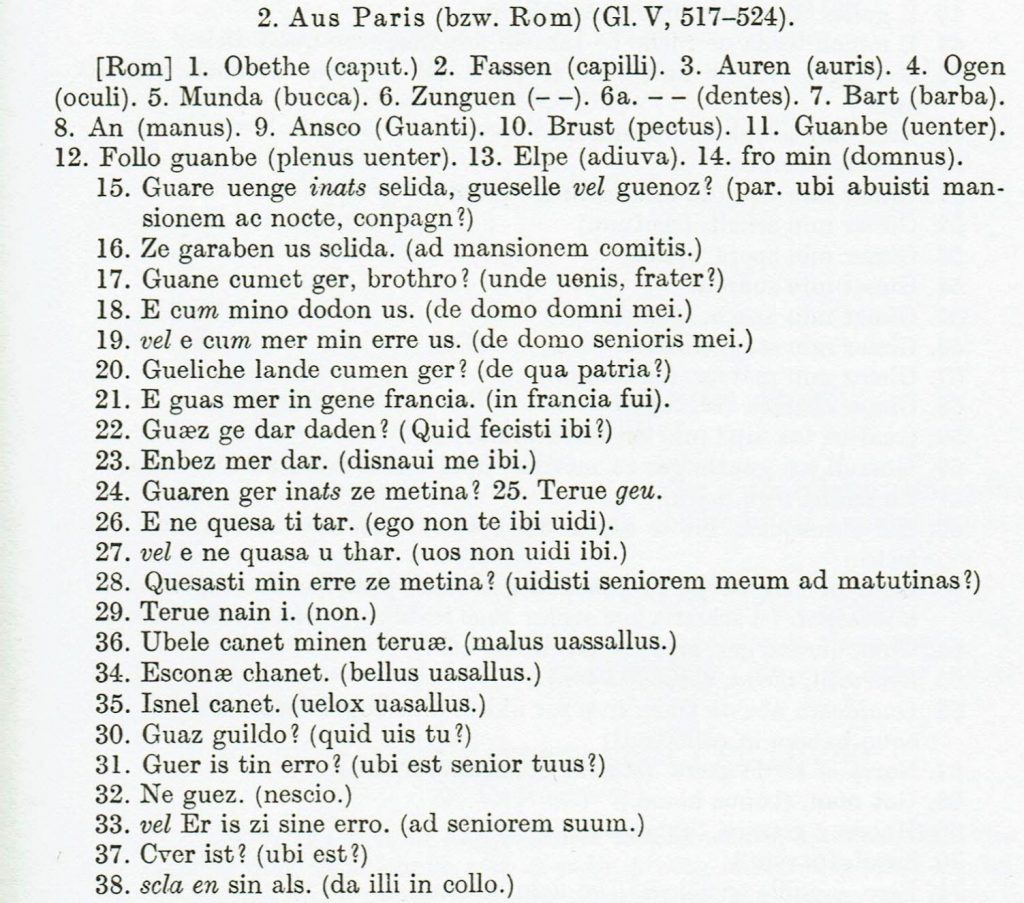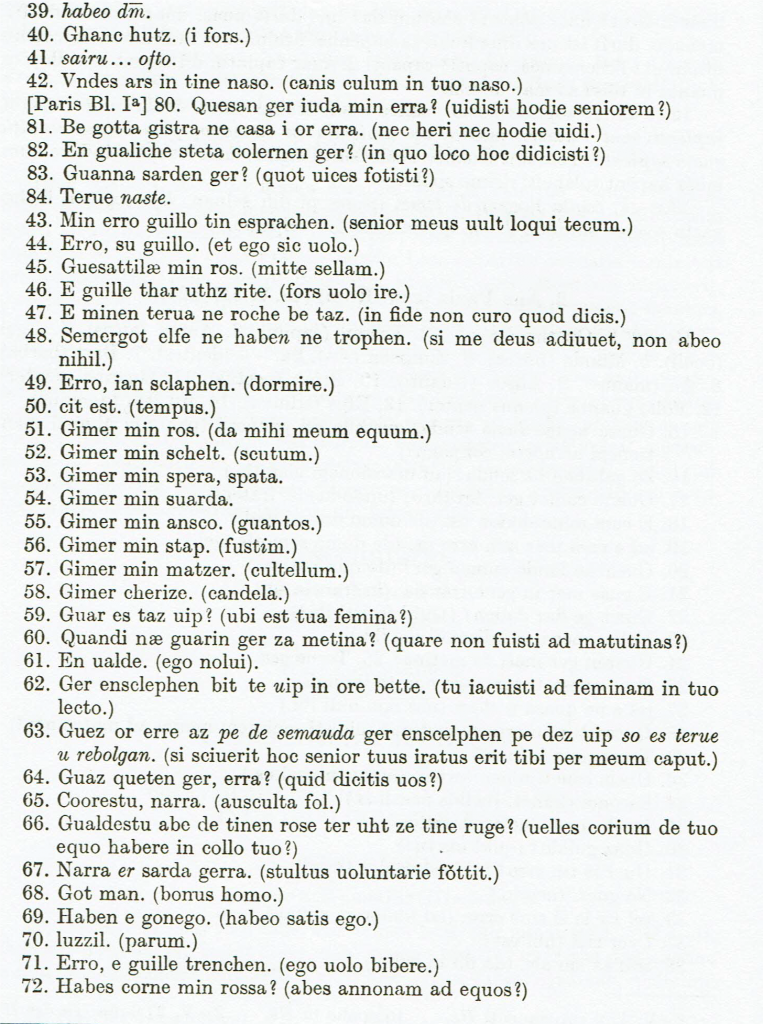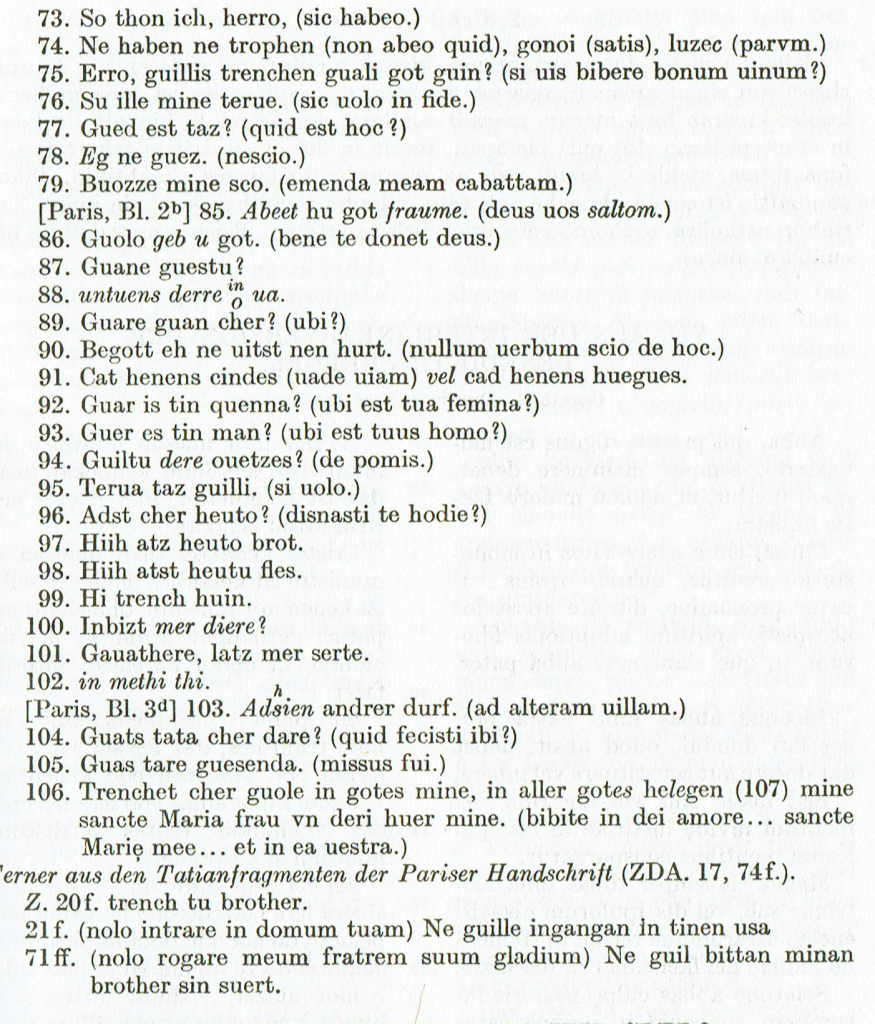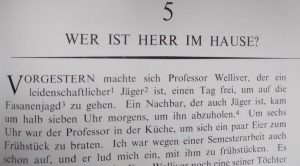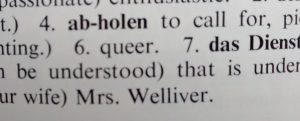Long, long ago, I read a list of rules for a Star Wars drinking game. “Take a drink every time Yoda speaks in German syntax,” it decreed.
But how often does Yoda actually use German syntax? Let’s go through some of his words of wisdom and see how many drinks that rule would get us, assuming we take one drink per German-inspired sentence, and don’t count sentences where the English and German word order would be identical. Sentences with distinctive Yoda syntax are in bold.
Yoda: Death is a natural part of life. Rejoice for those around you who transform into the Force. Mourn them do not. Miss them do not. Attachment leads to jealously. The shadow of greed, that is.
I don’t think we get any drinks out of this one. (Real German syntax: Mourn them not. Miss them not. The shadow of greed is that.)
Yoda: Yes, a Jedi’s strength flows from the Force. But beware of the dark side. Anger, fear, aggression; the dark side of the Force are they [yes!]. Easily they flow, quick to join you in a fight. If once you start down the dark path, forever will it dominate your destiny, consume you it will [nope], as it did Obi-Wan’s apprentice.
We get 1 drink. German syntax for the second bolded phrase is “forever will it your destiny dominate, it will you consume.”
Yoda: Powerful you have become, the dark side I sense in you.
0 drinks! It should be “Powerful have you become, the dark side sense I in you.”
Yoda: Ready are you? [I think that’s German enough. “Bereit bist du?” works if “ready/bereit” is the word you want to emphasize, and you’re kind of skeptical: “Oh, you’re ready, are you?” 1 drink.] What know you of ready? [2 drinks.] For eight hundred years have I trained Jedi. [close but no – “trained” needs to go at the end.] My own counsel will I keep on who is to be trained [close again – but now the conjugated verb, “is”, belongs at the end]. A Jedi must have the deepest commitment, the most serious mind. This one a long time have I watched. [“This one have I a long time watched” would be more German.] All his life has he looked away [“looked” should be last]… to the future, to the horizon. Never his mind on where he was. [I don’t think so.] Hmm? What he was doing. Hmph. Adventure. Heh. Excitement. Heh. A Jedi craves not these things. [I’ve encountered this word order in German, so we could take a sip, but “A Jedi craves these things not” would be more conventional.] You are reckless.”
2.5 drinks, I guess.
Yoda: Truly wonderful the mind of a child is. [Nope. “Truly wonderful is the mind of a child.”]
0 drinks.
Yoda: Size matters not. [1] Look at me. Judge me by my size, do you? Hmm? Hmm. And well you should not. For my ally is the Force, and a powerful ally it is. Life creates it, makes it grow. Its energy surrounds us and binds us. Luminous beings are we, not this crude matter. [2]
2 drinks.
So to sum up, with six Yoda speeches, including some long ones, you only get five drinks, maybe six. If I remember this game correctly, “a drink” was a swig of beer, not a shot of 80 proof vodka, so you can listen carefully to Yoda’s syntax for quite a while and still drive home.
People associate Yoda with German syntax because they’ve heard that in German “the verb goes at the end.” In fact, it’s more complicated than that. Depending on what else is going on in the sentence, German verbs bounce around like students at a drinking party.
